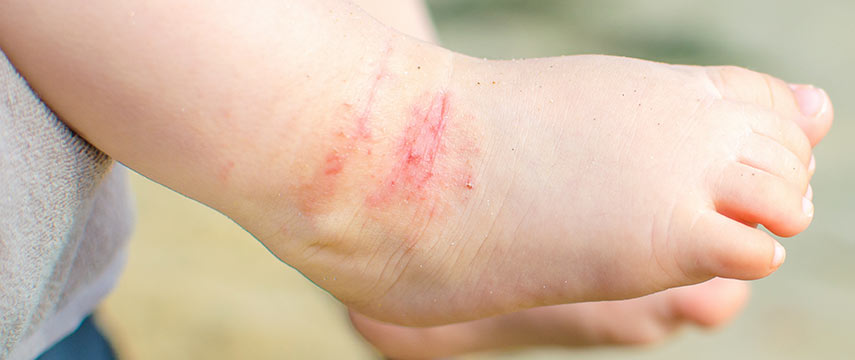Se você tem eczema (dermatite atópica), é difícil o suficiente evitar os surtos conforme o clima fica mais frio e seco. Mas assim como você precisa se adaptar as mudanças ambientais, também precisa considerar o que está colocando em seu corpo.
Acredite ou não, o que você come e bebe pode contribuir muito para o seu surgimento. É tudo sobre inflamação. Nada que você comer (ou não comer) vai curar seu eczema. Isso, infelizmente, vai ficar com você durante a sua vida adulta. No entanto, você pode fazer escolhas inteligentes em relação ao eczema em sua dieta diária para reduzir crises incômodas e que coçam.
Alimentos a evitar se você tiver eczema
Certos alimentos, incluindo nozes, leite e trigo, podem desencadear a liberação de células T causadoras de inflamação e imunoglobulina-E. Outros alimentos que comumente causam crises de eczema incluem ovos, laticínios, soja, frutas cítricas, tomates, glúten e até mesmo alguns temperos, como cravo, canela e baunilha.
Para aqueles com eczema disidrótico (eczema das mãos e pés), os alimentos que contêm níquel agravam os sintomas. Isso inclui carnes enlatadas, chocolate, sementes, feijão (incluindo soja), ervilhas, mariscos e até alguns chás pretos.
Experimente uma dieta de eliminação
Como saber se o que você está comendo ou bebendo está causando o surto de eczema? Normalmente, se você tiver alguma sensibilidade alimentar, terá uma reação em algum lugar entre 30 minutos a mais de alguns dias após ingeri-lo. Isso pode dificultar a identificação da origem do problema.
Se você não tiver certeza do que está causando as crises, pode tentar uma dieta de eliminação. Adicione um desses culpados comuns à sua dieta e monitore sua reação ao longo de algumas semanas. Rastreie a resposta do seu corpo, se houver. Se você não descobrir nenhum efeito perceptível, adicione o próximo ingrediente e teste novamente. Se você descobrir um ingrediente que está causando os sintomas, é hora de removê-lo completamente de sua dieta.
O que você deveria comer
Se você sofre de sensibilidades alimentares, é melhor trocar os infratores acima por alimentos anti-inflamatórios. Isso reduzirá a resposta do sistema imunológico. Adicionar ácidos graxos ômega-3 à dieta é um ótimo começo. Peixes gordurosos, incluindo sardinhas, salmão, atum e cavala são boas opções. Alimentos ricos em flavonóides como cerejas, maçãs, brócolis, verduras e frutas também fazem maravilhas no combate à inflamação. Você também pode adicionar alimentos com culturas ativas vivas encontradas nos probióticos à sua dieta, como iogurte. Às vezes, simplesmente mudando sua dieta, você pode reduzir muito o sofrimento de quem vem com as crises de eczema. Se você não tiver certeza do que funcionaria melhor para você, pergunte a um dermatologista.
